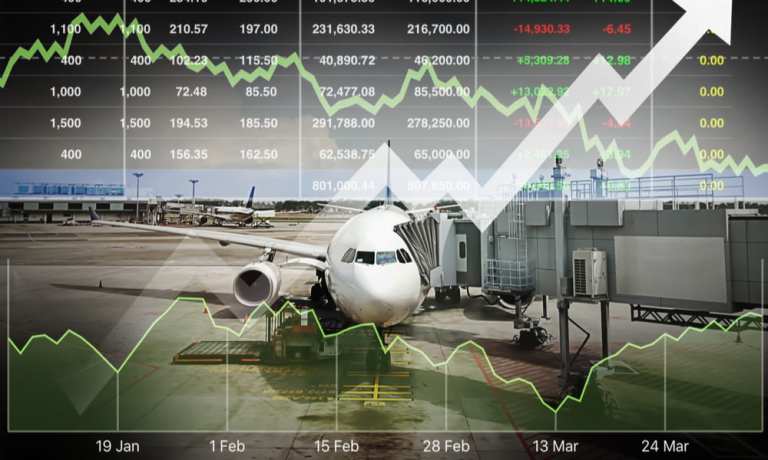Buffett’s Grounding Of Airline Stocks Shows Turbulence Ahead

The selloff begat the selloff.
To that end, news came over the weekend that famed investor Warren Buffett, through his investment vehicle, Berkshire Hathaway, has sold all of its holdings in U.S. airlines. The firm sold its stakes in equities tied to a host of marquee names such as American Airlines, Southwest, Delta Airlines and others.
And those sales came at significant losses for Berkshire.
At the company’s annual meeting, held online this past weekend, Buffett said the firm had put as much as $7 billion to $8 billion into those holdings, and “we did not take out anything like $7 billion or $8 billion.”
Berkshire Hathaway, by virtue of the sheer size of its holdings, was a significant shareholder of the airline firms, amounting to roughly 10 to 11 percent each of Delta, American and Southwest.
As a result, airline shares sold off Monday (May 4), many of them by mid- to high single-digit percentages.
Part of the selloff likely comes from investors’ worries about a possible hit to earnings as the industry has had to go to the well of government bailouts. As Buffett commented, “the four companies are each going to borrow perhaps an average of at least $10 or $12 billion. You have to pay that back out of earnings over some period of time.” In addition, at least one airline, United, is raising additional equity (to the tune of $1 billion), which in turn dilutes existing holders.
Beyond the earnings hit, the questions remain as to when, and even whether, there will be a return to some semblance of normalcy. Buffett has remarked that “you’ve got too many planes” as measured against demand.
Against the larger backdrop, said Buffett, the “world has changed for airlines.”
Part of that change stems from the fact that, well, no one really wants to go anywhere.
As noted in PYMNTS’ latest study into consumer behavior before and during the pandemic, which queried more than 12,000 respondents at the end of last month, more people have no interest leaving their homes than those who do — by a factor of two to one. Only 28 percent of consumers are interested in leaving familiar ground to venture out.
That does not augur well for airlines. And the soured sentiment about traveling is likely to last a while. Overall, consumers expect it will take roughly seven months to return to “normal.” That’s on top of the two months they’ve already spent, by and large, on lockdown.
The airlines? Well, they’ve had to be creative in terms of economic survival, scrambling to shore up finances in ways that really don’t have all that much to do with a bounceback in demand.
As noted in this space in mid-April, airlines have been raising money from just about every asset they hold. That includes, potentially, selling miles. Those miles, of course, are issued as rewards for credit card spend, and can be worth billions of dollars for airlines.
Airlines have already been reporting losses, as measured in the first quarter. The impact will continue, as many carriers are requiring that even domestic travelers wear face masks, which will apply in sky lounges, too. The policies are being embraced by Delta, United and JetBlue.
Buffett’s actions starkly illuminate that there’s turbulence on the horizon for these beleaguered firms.